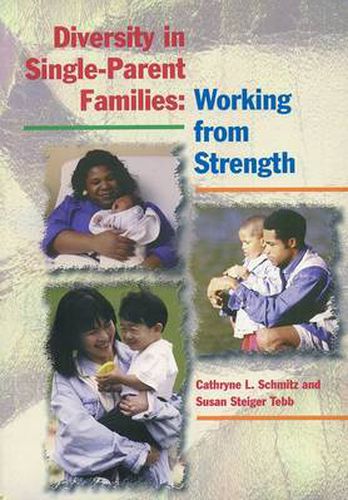Readings Newsletter
Become a Readings Member to make your shopping experience even easier.
Sign in or sign up for free!
You’re not far away from qualifying for FREE standard shipping within Australia
You’ve qualified for FREE standard shipping within Australia
The cart is loading…






Diversity in Single-Parent Families: Working from Strength is designed to fill gaps in current literature. The book presents strength-based service delivery options for single-parent families, which have been under-represented in literature and research. Research and appropriate service responses are organized by race/ethnicity, gender, economic status, sexual orientation, structure, and disability. The editors begin by discussing the socio-economic issues impacting single-parent families along with a framework for strength-based practice. The following chapters focus on communities that have been marginalized and overlooked. For each community implications for strength-based practice are summarized.
The editors recognize a broader need to present factual data as a base for decreasing assumptive biases about single-parent family structures. This book could be used in micro and macro practice courses, courses on multicultural practice, and courses focusing on families and/or children.
$9.00 standard shipping within Australia
FREE standard shipping within Australia for orders over $100.00
Express & International shipping calculated at checkout
Diversity in Single-Parent Families: Working from Strength is designed to fill gaps in current literature. The book presents strength-based service delivery options for single-parent families, which have been under-represented in literature and research. Research and appropriate service responses are organized by race/ethnicity, gender, economic status, sexual orientation, structure, and disability. The editors begin by discussing the socio-economic issues impacting single-parent families along with a framework for strength-based practice. The following chapters focus on communities that have been marginalized and overlooked. For each community implications for strength-based practice are summarized.
The editors recognize a broader need to present factual data as a base for decreasing assumptive biases about single-parent family structures. This book could be used in micro and macro practice courses, courses on multicultural practice, and courses focusing on families and/or children.